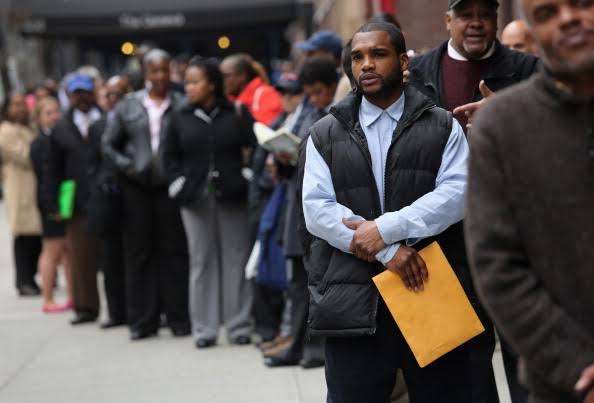CEM REPORT, ECONOMY | The sun-drenched plains and bustling cities of Nigeria, Africa’s most populous nation, face a gathering storm. A recent report by the Pcl. State Performance Index (PSPI) warns of severe economic challenges ahead, fueled by skyrocketing unemployment, widespread food insecurity, and the growing presence of illicit activities.
Titled “My State: Economic Potentials and Performance of States in Nigeria,” the report serves as a stark analysis of the nation’s socio-economic landscape. Its findings, based on surveys, data analysis, and risk assessments, paint a picture of uneven progress and looming threats across the 36 states and the Federal Capital Territory (FCT).
Unemployment: A Ticking Time Bomb
The report identifies unemployment as the most pressing issue, with a staggering 63% of Nigeria’s 200 million-strong population currently jobless. This translates to millions struggling to make ends meet, fueling social unrest and hindering economic growth.
“The high unemployment rate represents a ticking time bomb for national stability,” warns Dr Sam Amadi, a renowned economist and senior analyst quoted in the report. “Unless tackled strategically, it could further exacerbate poverty and crime, creating a vicious cycle that will be difficult to break.”
Food Insecurity: Empty Plates and Empty Hopes
Adding to the grim picture is the prevalence of food insecurity, affecting 41% of Nigerians. This means millions lack access to necessities like staple foods and nutritious meals, jeopardizing their health and well-being.
“Food insecurity not only threatens lives but also stifles productivity and economic potential,” emphasizes Professor Aisha Yakubu, a nutrition expert referenced in the report. “Investing in sustainable agriculture and creating accessible food markets is crucial to ensure every Nigerian has the chance to thrive.”
Illicit Activities: A Shadow Economy Casts Its Net
Further complicating the economic landscape is the spread of illicit activities, from petroleum theft and bunkering to kidnapping and organized crime. These activities not only undermine legitimate businesses but also erode trust and investment, creating a climate of fear and instability.
“The prevalence of illicit activities discourages foreign investment and stifles local entrepreneurship,” says Mr Femi Johnson, a security analyst featured in the report. “Combating these activities requires a multi-pronged approach, addressing root causes like poverty and unemployment alongside robust law enforcement.”
Hope Amidst the Challenges
Despite the bleak outlook, the PSPI report identifies five states that stand out for their positive performance and economic potential: Gombe, Jigawa, Ekiti, Lagos, and the Federal Capital Territory (FCT). These states are lauded for their “continuity in government, ongoing investments in infrastructure, alignment with federal initiatives, economic diversification, and strategic agricultural programs,” as exemplified by Gombe, the top performer
[READ ALSO] Nigeria’s External Reserve falls to 33.116 Billion Dollars Amidst High Exchange Rate
“Gombe serves as a model for other states,” notes the report. “Their focus on long-term development, good governance, and inclusive growth offers valuable lessons for overcoming Nigeria’s economic challenges.”
Lagging:
At the other end of the spectrum lie Plateau, Nasarawa, Zamfara, Abia, and Imo states, identified as the lowest performers. These states face significant hurdles in areas like infrastructure, employment, and public services.
“These states require immediate and targeted interventions,” urges the report. “Investing in education, healthcare, and job creation are critical first steps. Additionally, fostering transparency and accountability in governance is essential to unlock their full potential.”
A Crossroads Moment for Nigeria
The PSPI report serves as a wake-up call for Nigeria. The nation stands at a crossroads, its path forward shaped by the choices it makes today. Addressing the issues of unemployment, food insecurity, and illicit activities is not just an economic imperative, but a moral one. By prioritizing inclusive growth, good governance, and sustainable development, Nigeria can weather the storm and build a brighter future for all its citizens.
This article is just the beginning of the conversation. What are your thoughts on the challenges facing Nigeria? Share your comments below and join the discussion!












